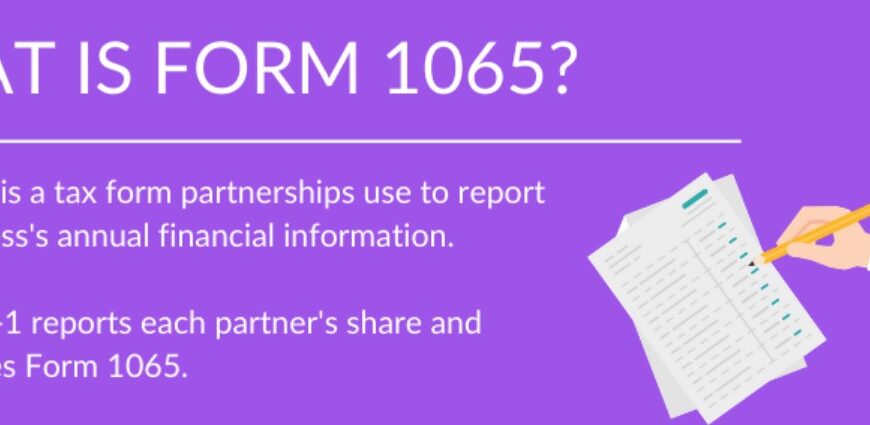Form 1065 with Syed Professional Services
The tax landscape can be particularly complex for businesses, and partnerships are no exception. This informative guide by Syed Professional Services explores Form 1065, the U.S. Return of Partnership Income, a crucial document used by partnerships to report their financial activities and tax obligations to the IRS. We’ll delve into who needs to file Partnership Tax, what information it captures, and how our team of tax professionals can ensure accurate and efficient partnership tax filing.
Understanding Partnerships and Form 1065
A partnership is a business venture where two or more parties (partners) share profits and losses. For tax purposes, partnerships are considered “pass-through entities.” This means the partnership itself doesn’t pay income tax. Rather than retaining the profits and losses, the partnership distributes them to the partners, who then disclose these gains and losses in their tax returns. This process is known as “pass-through”.Partnership Tax is the official document for reporting the partnership’s income, deductions, credits, and other tax-related information to the IRS.
Who Needs to File Form 1065?
Most domestic partnerships are required to file Partnership Tax. Here’s a breakdown of the typical filers:
- General Partnerships:. This is the most common partnership structure, where all partners share in the management and operation of the business.
- Limited Partnerships (LPs): LPs have two types of partners: general partners who manage the business and limited partners who contribute capital but have limited liability and involvement in day-to-day operations. Note: While LPs generally file Partnership Tax, some states may exempt specific LPs from filing.
- Limited Liability Partnerships (LLPs): Similar to LPs, LLPs offer limited liability protection to all partners. However, LLPs typically have more flexibility in management structures and generally file Form 1065.
- Nonprofit Organizations:. Certain tax-exempt nonprofit organizations operating as partnerships may need to file Form 1065 to report unrelated business income (income derived from activities outside their exempt purpose).
What Information Does Form 1065 Capture?
Form 1065 gathers a comprehensive picture of the partnership’s financial performance and tax situation:
- Partnership Identification: Basic information about the partnership, such as its legal name, EIN (Employer Identification Number), and business address, is recorded.
- Income and Deductions: The form details the partnership’s income from various sources, including business operations, investments, and rental activities. It also captures all deductible business expenses incurred by the partnership throughout the year.
- Credits and Taxes: Any applicable tax credits the partnership qualifies for are reported. Form 1065 also calculates and reports any potential taxes the partnership owes, such as taxes on certain passive income or payroll taxes.
- Partner Information: Schedules attached to Form 1065 provide details about each partner, including their distributive share of the partnership’s income, deductions, credits, and other tax items. This information is vital for partners to accurately report their share of the partnership’s tax burden on their tax returns.
Understanding Form 1065 Instructions and Deadlines
The IRS provides detailed instructions for Form 1065, which can be found on the IRS website https://www.irs.gov/pub/irs-pdf/i1065.pdf. These instructions offer valuable guidance on completing the form accurately and ensure you understand specific filing requirements. The deadline to file Form 1065 is typically the 15th day of the third month following the close of the partnership’s tax year. However, extensions may be available under certain circumstances.
Syed Professional Services: Your Partnership Tax Filing Partner
Filing Form 1065 can be complex, especially for partnerships with intricate financial structures or unique tax situations. Syed Professional Services can empower your collaboration with the following:
- Filing Determination: We’ll help you determine whether your partnership must file partnership Tax based on its structure and tax obligations.
- Accurate Form Completion:. Our tax professionals can ensure your Partnership Tax is filled out accurately. And reflects your partnership’s financial activity throughout the year.
- Schedule Management:. We can guide you through completing the various schedules attached to Partnership Tax. Ensuring accurate reporting of each partner’s distributive share.
- Tax Planning and Optimization:. We can explore tax planning strategies to minimize your partnership’s overall tax burden and ensure partners are aware of potential tax implications.
- Communication and Representation: We can communicate




